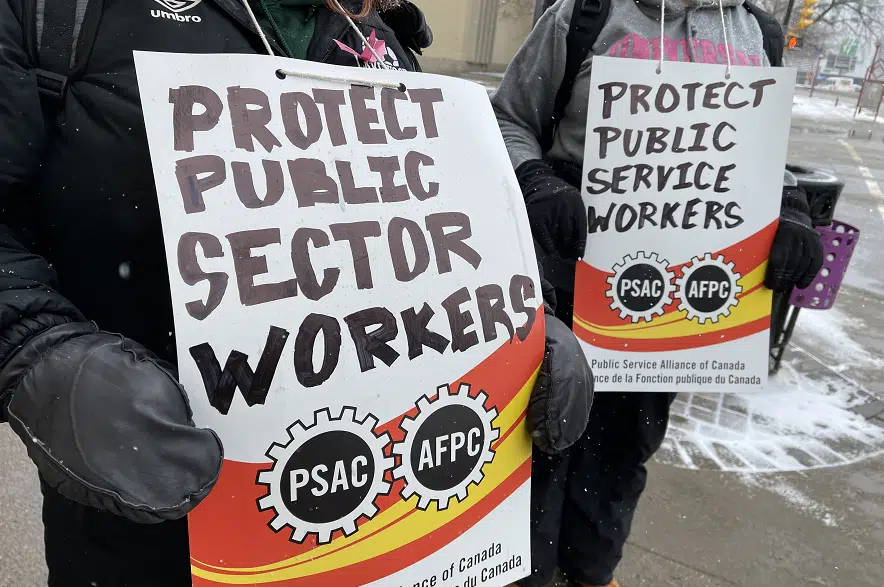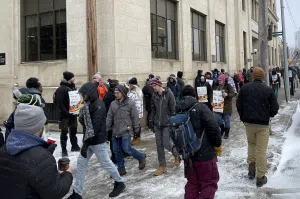Federal workers walked off the job and into the snow on Wednesday in Saskatoon and Regina.
Aaron Kernaghan is the new local president for the immigration union with the Public Service Alliance of Canada. She said their workers have been without a contract for three years — negotiations stalled out just before COVID-19 hit.
“The federal government has been using that as a justification to not meet us at the bargaining table for several years,” she said on Wednesday morning outside the Service Canada building in Saskatoon.
Picketers carrying signs that read “Protect public sector workers” and “We said we were ready to strike” walked the line as wet snow fell on the sidewalks in temperatures just below freezing. Across Canada, more than 150,000 public servants also joined the strike.
“We’re not asking for an unreasonable cost-of-living adjustment, but inflation has been astronomical in the last couple years,” Kernaghan said.
She said their workers have continued to work hard throughout the pandemic to keep services going for Canadians.
Services partially or fully disrupted by the strike include passport services, biometric services (which confirm identities and run background checks), and job banks.
Kernaghan said it has been “quite difficult” for workers to meet the “ever-changing” demands of the Treasury Board when it comes to return-to-office requirements.
Further, she said nothing in her workers’ contracts about a tele-work agreement has been ratified, despite workers dealing with regularly changing schedules to meet evolving tele-work demands.
Kernaghan said she hopes the strike will show the government how serious workers are.
She said workers are passionate about their jobs, but need enough income to put food on the table for themselves and their families.
The average federal worker on strike, she said, earns between $40,000 and $60,000 per year.
“I think it’s important that everyone remember that most of us are workers, and that we’re all just trying to get through,” she said.
“If we all stand in solidarity, it is easier to have a more equitable society.”
—With files from 650 CKOM’s Steve Seto








